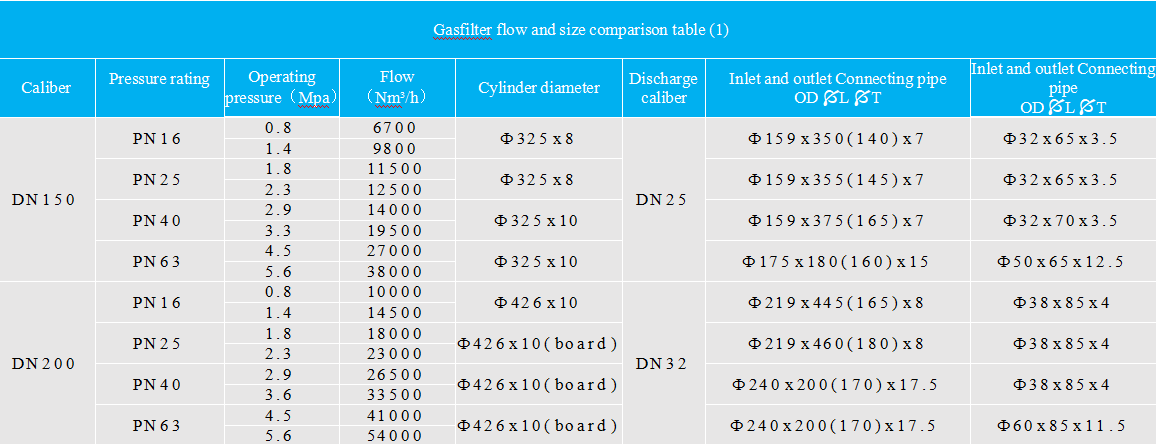
Dec . 05, 2024 16:30
Back to list
Efficient Filtration Solutions for Natural Gas Purification and Treatment
The Importance of Natural Gas Filters in Modern Energy Systems
Natural gas has emerged as a critical energy source in recent decades, providing cleaner and more efficient alternatives to other fossil fuels such as coal and oil. As the demand for natural gas continues to grow globally, the need for effective filtration systems becomes increasingly vital to ensure optimal performance, safety, and environmental compliance. This article explores the importance of natural gas filters in the energy industry, discussing their types, functions, and benefits.
Understanding Natural Gas Filters
Natural gas filters are essential components of natural gas processing and distribution systems. Their primary role is to remove impurities, contaminants, and particles from natural gas before it is transported to consumers. These filters can vary in design and application, including coalescing filters, particulate filters, and activated carbon filters, among others. Each type serves a specific purpose, ensuring that the natural gas delivered to consumers is both clean and safe for use.
Types of Natural Gas Filters
1. Particulate Filters These filters are designed to capture solid particles, such as dirt, dust, and metal shavings that may be present in natural gas systems. By removing these particulates, particulate filters protect downstream equipment and ensure efficient gas flow.
2. Coalescing Filters Coalescing filters are specifically used to remove liquid contaminants, such as water and hydrocarbons, from gaseous fuels. They work by allowing tiny droplets to combine into larger ones, which can then be drained away. This is crucial in preventing corrosion and damage to pipelines and equipment.
3. Activated Carbon Filters These filters are employed to remove odors and volatile organic compounds (VOCs) from natural gas. Activated carbon has a large surface area and can adsorb various impurities, ensuring that the gas delivered is not only clean but also has a neutral odor.
4. Membrane Filters These advanced filters utilize a permeable membrane to separate contaminants from natural gas. They are highly effective for specific applications, particularly where precise filtration is required.
Functions of Natural Gas Filters
Natural gas filters perform several critical functions that contribute to the overall efficiency and safety of gas processing and delivery systems
- Contaminant Removal By filtering out impurities, these systems prevent damage to compressors, valves, and other equipment, thus extending their lifespan and reducing maintenance costs.
natural gas filter

- Safety Assurance Impurities in natural gas can lead to dangerous situations, including explosions and leaks. Filters help to mitigate these risks by ensuring that the gas is as clean as possible before it reaches consumers.
- Regulatory Compliance Many regions have stringent regulations regarding the quality of natural gas. Filters help companies meet these standards, avoiding penalties and ensuring consumer trust.
- Improved Efficiency Clean gas burns more efficiently, contributing to reduced emissions and optimizing performance in end-use applications, such as heating and electricity generation.
Benefits of Implementing Natural Gas Filters
The implementation of natural gas filters brings numerous benefits to energy companies and users alike, including
- Cost Savings Reducing the risk of equipment failure and maintenance issues can result in significant cost savings over time. Clean gas systems operate more efficiently and can lead to lower operational expenses.
- Environmental Impact By ensuring that natural gas is free from harmful contaminants, filtering contributes to cleaner combustion, thereby reducing greenhouse gas emissions and adhering to environmental regulations.
- Enhanced Reliability Reliable filtration systems enhance the overall reliability of natural gas supply. Consumers can expect consistent quality and delivery, which is especially important in industries reliant on a stable energy source.
- Consumer Confidence Providing cleaner, safer natural gas helps build consumer trust. Transparency in the quality and safety of the gas supplied can enhance a company’s reputation in the market.
Conclusion
Natural gas filters, while often overlooked, play a crucial role in the energy landscape. They safeguard the integrity of natural gas supply chains, enhance safety, improve efficiency, and contribute to a more sustainable energy future. As the global energy transition continues to unfold, the importance of effective filtration systems in natural gas operations will only grow, underscoring the need for investment and innovation in this vital sector.
Next:
Latest news
-
Safety Valve Spring-Loaded Design Overpressure ProtectionNewsJul.25,2025
-
Precision Voltage Regulator AC5 Accuracy Grade PerformanceNewsJul.25,2025
-
Natural Gas Pressure Regulating Skid Industrial Pipeline ApplicationsNewsJul.25,2025
-
Natural Gas Filter Stainless Steel Mesh Element DesignNewsJul.25,2025
-
Gas Pressure Regulator Valve Direct-Acting Spring-Loaded DesignNewsJul.25,2025
-
Decompression Equipment Multi-Stage Heat Exchange System DesignNewsJul.25,2025

